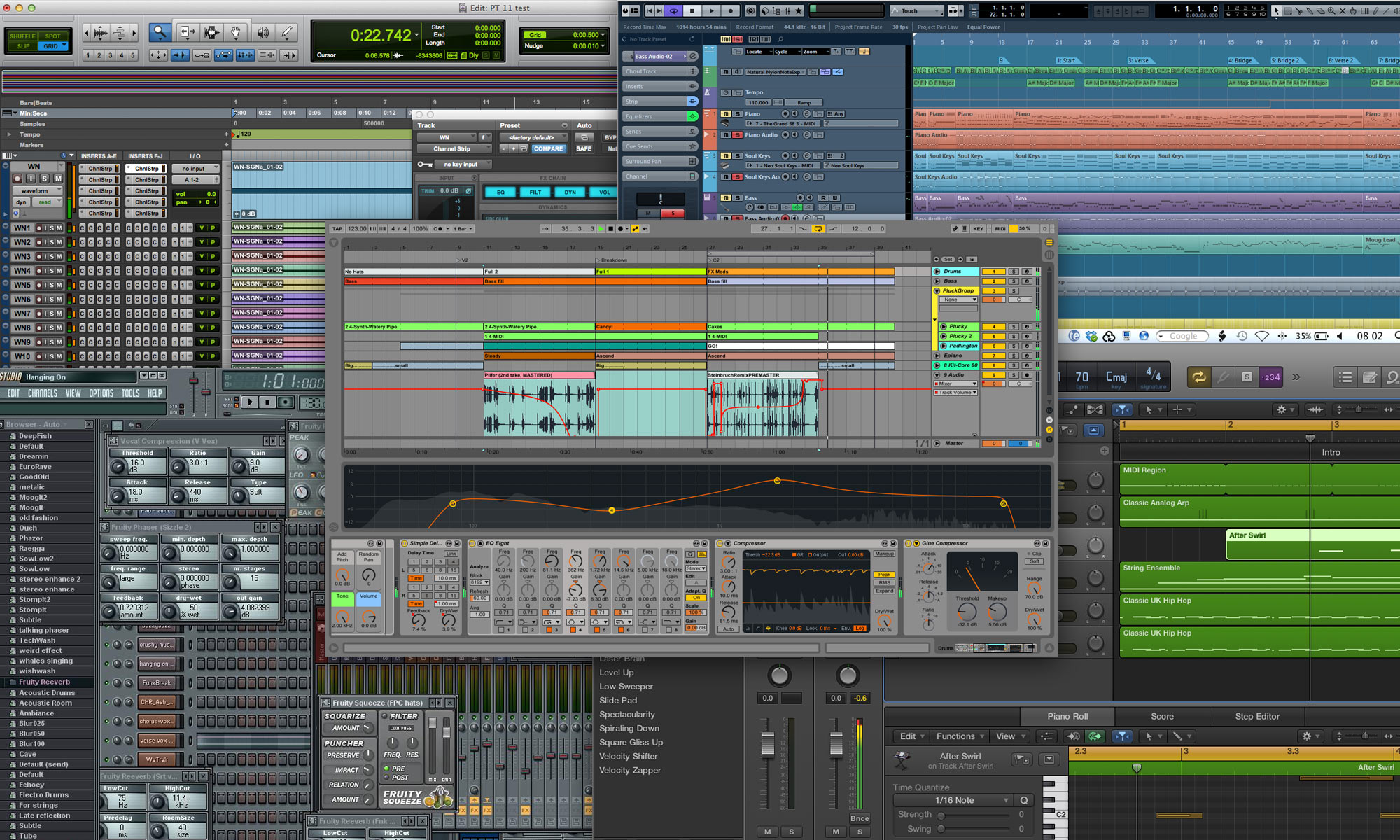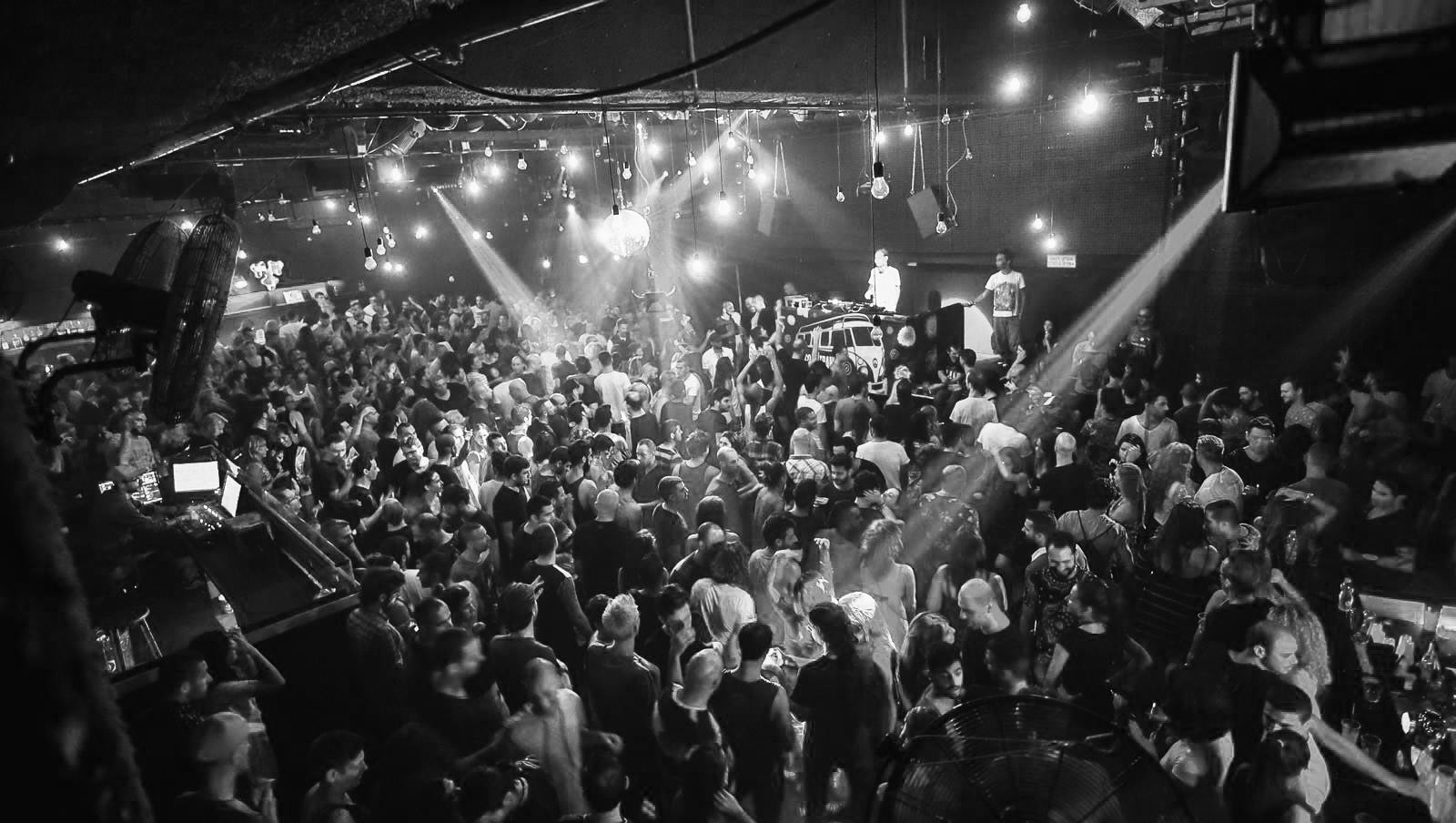Choosing a DAW
A question of choice for beginners

I would like to try myself in music production, what software would you recommend? What’s the different between them?
Daniel
Digital audio workstation, or simply DAW, is a question of choice of many beginners. There are so many DAWs out there! I bet you read many forums, but everyone suggests what they love and the “holy war” never ends. So which one to choose?
Here is the hint: you can achieve the same results in any DAW, like Cubase, Logic, Ableton, Fruity Loops and more. I repeat: you can achieve the same result — a quality produced track — in any software. But nevertheless, programs differ by four criteria.
The difference
- Platform. Ones only for Mac, ones for Windows, the others – for both.
- Price. Keep in mind It doesn’t affect either the process or the result. The cheaper doesn’t mean the worse, and vice versa.
- Built-in plugins. There are different numbers of built-in instruments, plugins, and effects with various functionality.
- User interface. Buttons, windows, menus — all that stuff. Ones look like the space operation center, the others much simpler. There are no good or bad interfaces, its perception is subjective. As for me, this is the most important criterion.
| DAW | Platform | Price |
| Ableton Live | Windows, OS X | $99—749 |
| Apple Logic | OS X | $199 |
| Bitwig Studio | Windows, OS X, Linux | $299 |
| Steinberg Cubase | Windows, OS X | $99—599 |
| Propellerhead Reason | Windows, OS X | $399 |
| Image-Line FL Studio | Windows | $99—737 |
| Avid Pro Tools | Windows, OS X | $0—899 |
| Reaper | Windows, OS X | $225 |
| PreSonus Studio One | Windows, OS X | $99—399 |
| Cakewalk Sonar | Windows, OS X | $99—499 |
Odd one out
The program choice is not important in the sense of music production. However, when it comes to live performances, one software stands out – Ableton Live.
Ableton developers made up such a unique system that doesn’t exist in other programs. I know the musicians who write music in Cubase due to preference or habit but still perform with Ableton. If someday you are planning to go beyond the walls of your house with your music, I recommend considering Ableton as the main program – both for writing and performing. It’s easier and plus cheaper.
Trial version
Fortunately, these programs are available as trial versions (except Logic Pro), so you can try before buying. Demo-versions usually have a 30-days period and may have limited functionality, but these are enough to understand whether you like it or not.
For me, one day was enough to test out Cubase and FL Studio: I just run them, horrified, and closed. On the contrary, 30 days were not enough with Ableton: I installed it on three different PCs to make a final decision. The choice of the program is subjective, that’s why I recommend trying all of them.
License
I wrote above «buy» purposely as I know in this digital era many prefer to download «cracked» software, and beginners especially. I recommend to actually buy DAWs not just because it’s right, not because of legal things, and not because it’s a very complex product and developers deserve to be rewarded. I recommend buying software because you’ll feel different about it: something that took you efforts to get, in the end, will get more attention rather than something you’ve got for free, play around for a week and then forget.
Buy licensed software if you have serious intention to begin a music producer’s career.




Another factor to consider is availability of tutorials. One DAW I bought, Acoustica’s Mixcraft (Windows, but does run under bootcamp; I have the Pro Studio version) has a number of their own tutorials, but once you try to go beyond it becomes a challenge figuring out do the same thing in the Mixcraft workflow. Ableton Live (for example) has their own tutorials and a large amount of community-generated content.
To go with this, take a look at the support community. The bigger the community using the DAW, the more likely you’re going to get quality input/help/feedback when stuck. Obviously any community could have people who aren’t helpful, but the larger ones will likely have enough good members to outweigh the bad.
Don’t hesitate to ask questions. You may not always get the answer you’re looking for, but you will probably get closer to your goal. You’ll also avoid frustration at getting the DAW to do what you want it to do.
Don’t be helpless. No one starts out a full-fledged expert in their DAW of choice. Asking questions is a good thing, but asking questions about topics clearly addressed in the documentation will not help your cause. Dig into the user manual (yes, reading and learning are required here), look at the questions already asked in the community, use the search engine of your choice to explore other resources, experiment with the DAW, and consider taking a course in basic sound design (there are free courses available). Have fun with it.
Finally, the base DAW might not be enough for your needs. All DAWs come with a set of VST plugins. The “pro” versions will come with more/better VSTs. But that might not be enough to make the desired sounds/music. Any good DAW will support third-party VSTs. And there are a number of free VSTs available. However, it might require buying plugins to get the effect you’re after.
Thanks for your input, nice one!
Speaking of community and guides, as an Ableton user I just love their fantastic reference manual with cross-links between the sections, really helpful even for advanced users.